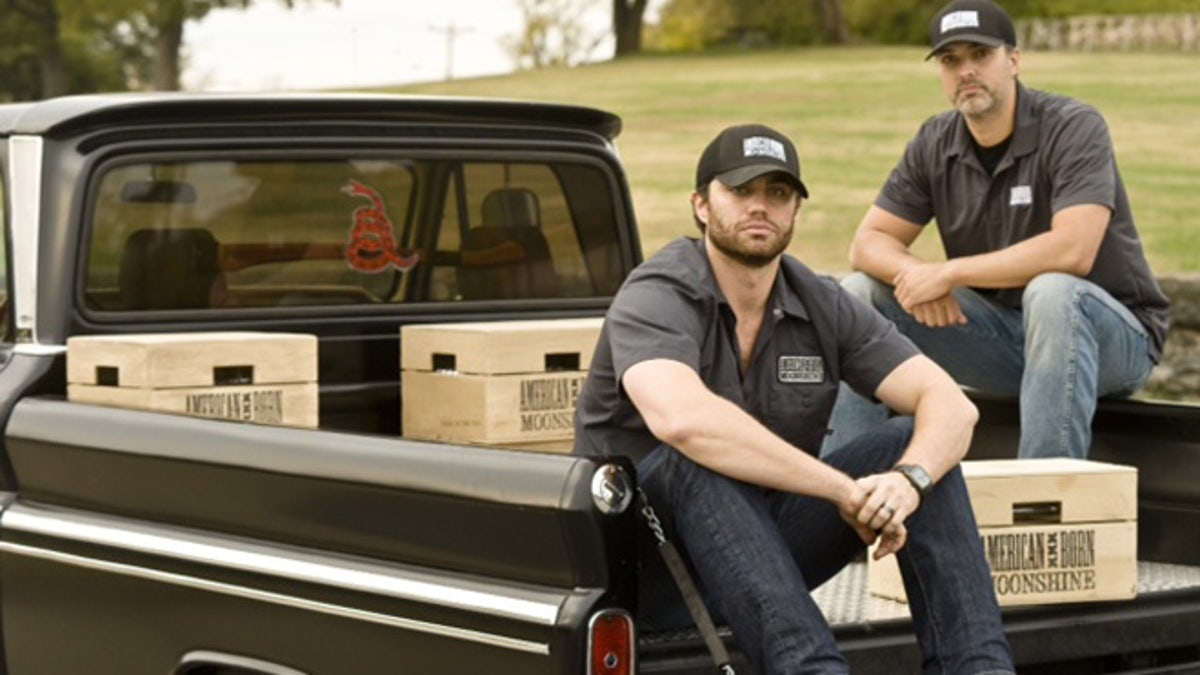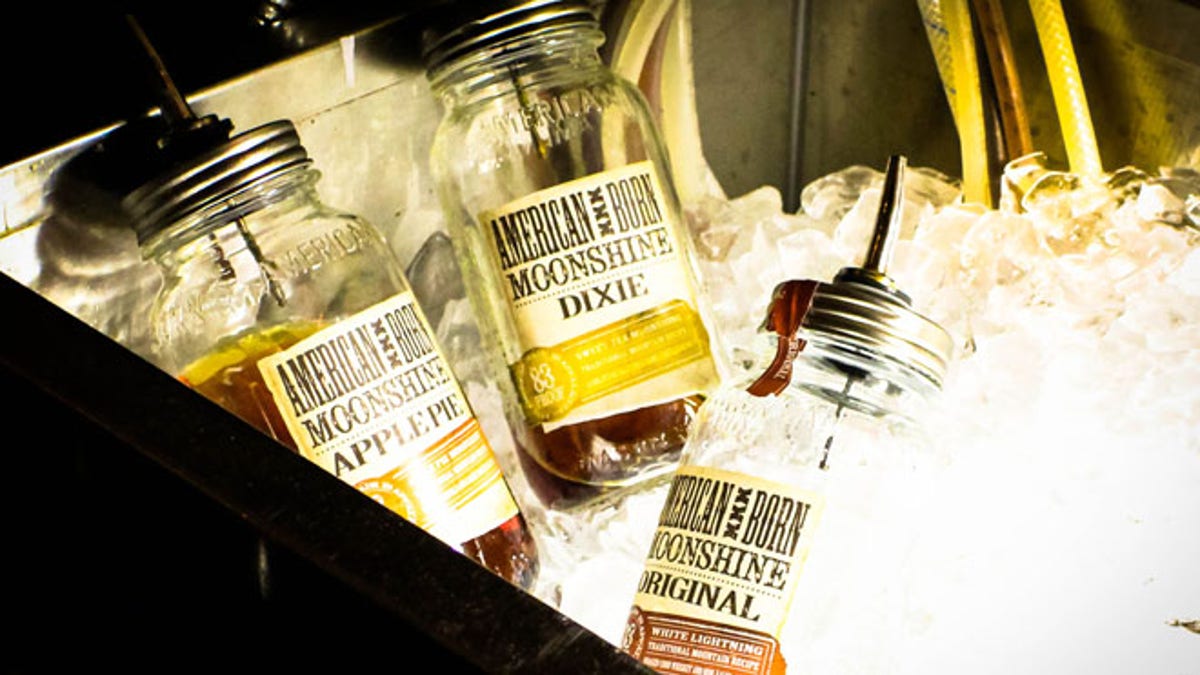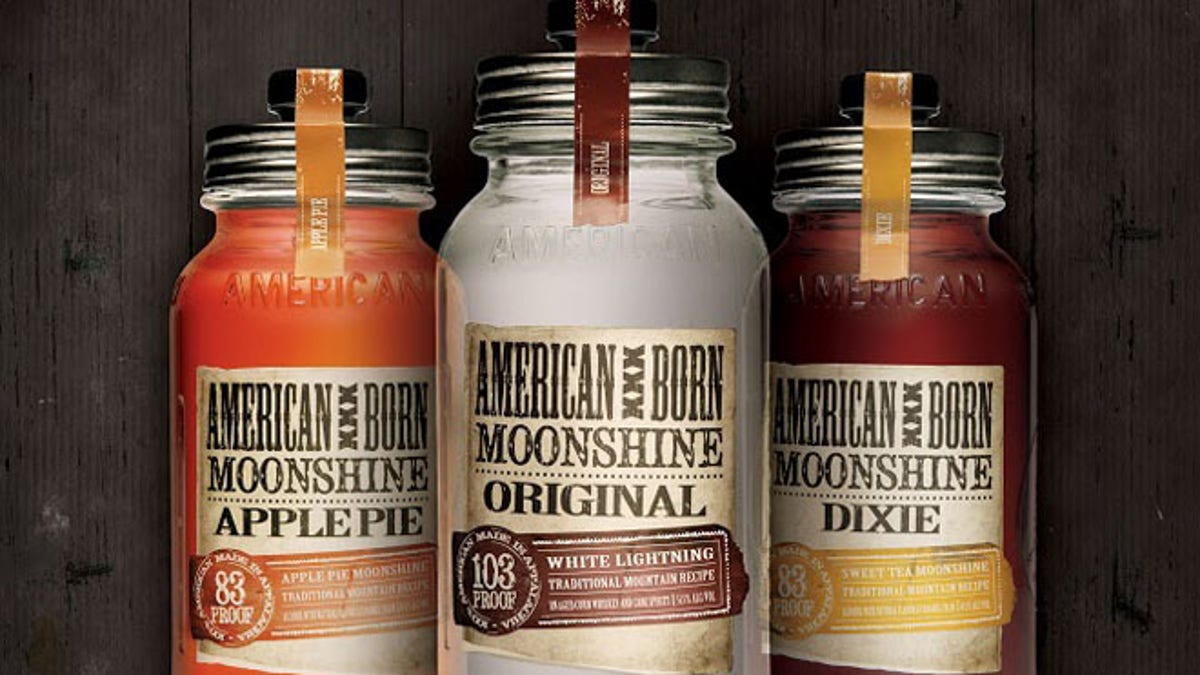
Sean Koffel (left), a former Marine Corps captain and Iraq War veteran and Pat Dillingham (right), a former quarterback for Notre Dame, wanted to make authentic moonshine that paid homage to the industrious bootleggers of America’s past. (American Born Moonshine)
Five years ago, when moonshine rose from the backwaters of Appalachia to star status at cosmopolitan bars around the world, Pat Dillingham and Sean Koffel saw a need to preserve an industry they feared might turn into “cheap vodka in jars.”
“We are doing everything in our power to stay authentic. We owe the American people awesome products.”
Dillingham, a former quarterback for Notre Dame, and Koffel, a former Marine Corps captain and Iraq War veteran, created Windy Hill Spirits, a Nashville-based company whose goal was to make authentic moonshine that paid homage to the industrious bootleggers of America’s past.

(American Born Moonshine)
The result was American Born Moonshine.
“It was our deep love for Southern culture that was the inspiration for American Born Moonshine,” said Dillingham, who met Koffel in business school at Stanford University.
But first they needed to get it right. So they quit their jobs and traveled down the Appalachian Trail to the Mississippi Delta and small Southern towns where they could talk to old-time bootleggers, fellow Marines and their families — picking up recipes and stories along the way.
Moonshine, made primarily of corn whiskey and sugar, became popular in speakeasy bars during Prohibition, after the 18th Amendment to the Constitution, enacted in 1920, made the sale, manufacture and transportation of alcoholic beverages illegal. Americans rebelled by secretly distilling alcohol at night under the light of the moon, and that’s how “moonshine” got its name.
Prohibition ended in 1933 with the 21st Amendment, but moonshine remained hard to come by, because it continued to be made in illegal stills. Today, several moonshines have hit the market to meet a growing thirst for drink. From 2010 to 2012, sales of “white lightning” in the U.S. quintupled to more than 250,000 cases, according to the research firm Technomic.
Koffel's time in the military sparked his interest in moonshine. “Some of the incredible friendships I made in the Marines were behind my early introduction to moonshine,” he said. “Those same friendships are also a big part of what fuels our team's passion to ensure we pay homage to the moonshiners and bootleggers of our nation's past in an honest and authentic way.”

(American Born Moonshine)
But Dillingham said the trip through the South helped shape the brand into what it is today: a truly American drink.
“We are doing everything in our power to stay authentic. We owe the American people awesome products,” he said.
American Born Moonshine distills three flavors, all of them influenced by the South: Original (103 proof), Dixie (83 proof) and Apple Pie (83 proof).
When sipped chilled, the original has a strong and smooth finish. Dixie tastes like your grandmother’s sweet tea, with a long finish in your mouth. Apple Pie tastes just like apple pie, but with a noticeable cinnamon aftertaste.
From the Mason jars to the labels, everything is made in America. The Gadsden Flag, with the words “Don’t Tread On Me,” is embossed on the side of every jar. That independence is carried into daily business operations; if you work for American Born Moonshine, you’re considered a “bootlegger.”
Each jar is engineered for easy drinking. There’s the typical lid, which you can screw off and pass around for folks to sip and enjoy. But a clever design in the middle of the lid lets a bartender pop a cork and pour the moonshine into a glass for the perfect mixed drink.
The popularity of moonshine has made for a crowded market at bars and liquor stores that American Born Moonshine is trying to expand by going after whiskey lovers and drinkers of premium spirits, including tequila — one sip at a time.
And they’re gaining momentum. American Born Moonshine is available in 14 states and will expand to 30 by the end of this year. But Dillingham and Koffel say the best feeling comes when they see bartenders carrying only their brand.
“We are most proud to run into a country bar in the rural South and see our product is the only moonshine on the shelf. We’re honored when see that,” says Dillingham.
